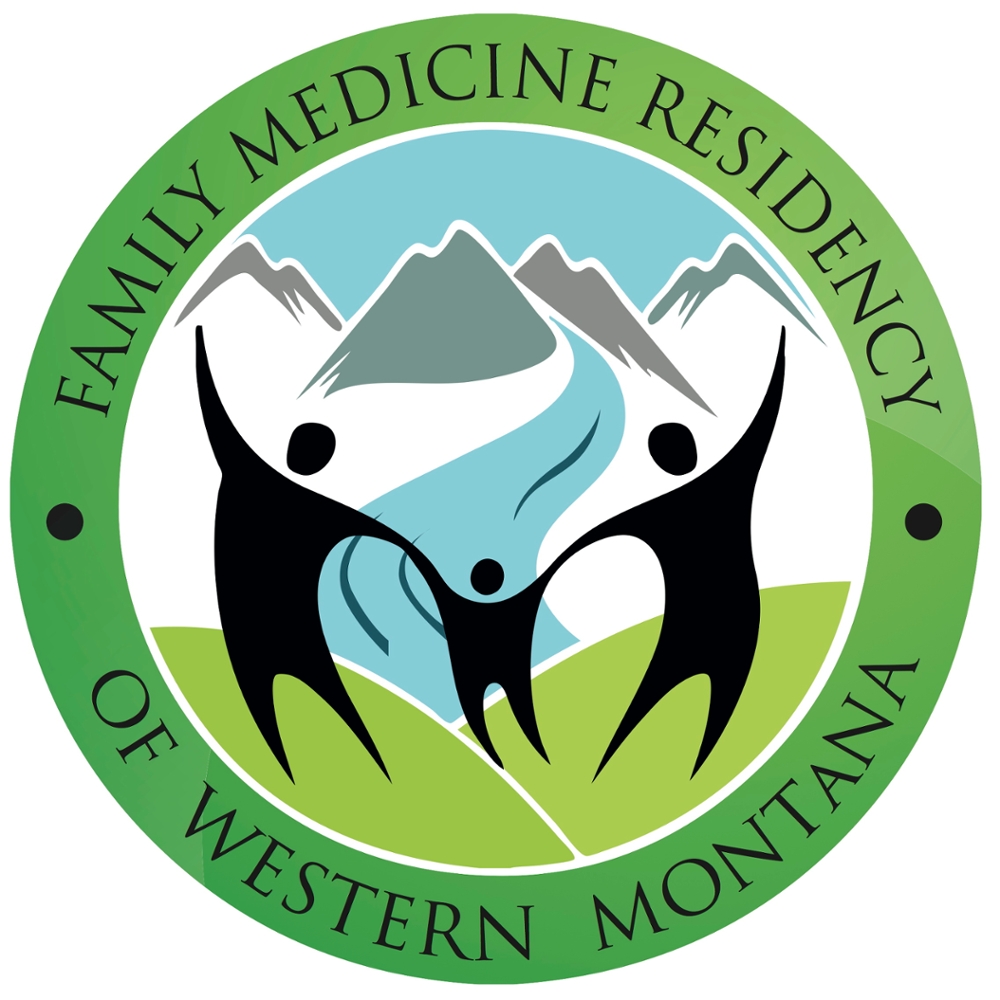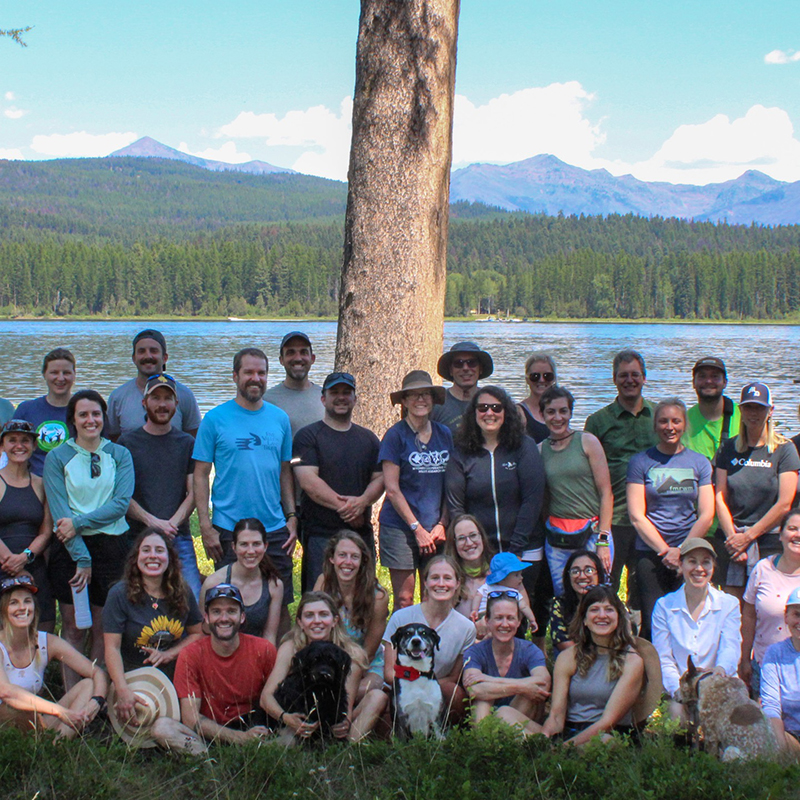Our Curriculum

The FMRWM curriculum is designed to create family physicians who have exceptional, comprehensive medical skills and are able to rise to the unique challenges of living in and practicing medicine in rural and underserved communities.
The curriculum emphasizes resident time in continuity clinic and recognizes the importance of rotations in rural communities; we have 16 rural communities engaged in providing the settings and resources for our rural blocks. These rotations are highly coveted by our residents and many of them choose to spend additional elective time in these communities.
Video
Unique Curricular Areas
Residency at FMRWM starts with this one-month block. “IFM” helps foster strong connections, trust and support among the incoming class and with their fellow residents, faculty, and staff. The block includes some of the basics (orientation, computer access, and life support courses) and a robust orientation to continuity clinic. Highlights of IFM include several outdoor activities, a “wilderness weekend” camping trip, life support courses and an all-residency retreat (families and pets welcome!).
Montana is home to eight federally recognized American Indian tribes. Among our clinic patient populations, about 6% of individuals at Partnership Health Center and 2% at Greater Valley Health Center identify as American Indian/Alaska Native. FMRWM has developed educational experiences to help residents gain skills and knowledge in the unique aspects of caring for American Indian/Alaska Native populations with the goal of addressing health equity. Training begins during the IFM month with a focus on historical trauma-informed care and cultural humility and continues throughout residency in a variety of settings. These include experiences during the Community Medicine rotation at the All Nations Health Center, as well as rural rotation opportunities at the Confederated Salish-Kootenai Tribal Health Department in St. Ignatius, MT and the Blackfeet Community Hospital in Browning, MT. In 2022, we developed a new American Indian Health Track for interested residents to gain additional experience and education in care for American Indian populations.
Both Behavioral Medicine and Addiction Medicine are core experiences in the PGY1 year, each with a 4 week rotation.
The Behavioral Medicine rotation provides foundational skills in applying the biopsychosocial model of patient care. Interns receive 1:1 coaching in patient-centered communication, health behavior change and motivational interviewing, brief office-based behavioral interventions, and integration of psychosocial context into assessment and treatment planning. The rotation also includes participation in a telehealth behavioral medicine clinic, consultation with hospital/outpatient psychiatrists for the purposes of psychotropic medication management and crisis mental health assessment, and shadowing opportunities with PHC’s social work team.
Our continuity clinic’s integrated behavioral health model provides additional, longitudinal opportunities for residents to work directly with faculty psychologists on “warm hand-offs” in clinic. This helps residents learn practical behavioral medicine techniques that will be applicable in low-resource or rural settings. Finally, some senior residents choose to develop a 2-week behavioral medicine “elective” with a focus of their choosing (e.g., chronic pain, healthy weight management, CBT skills). FMRWM is fortunate to have two dedicated clinical psychologists, Jennifer Robohm, PhD, and Ellen Bluett, PhD, as the Behavioral Science faculty leading this curriculum. In addition, Sarah Potts, PhD, PHC’s Director of Behavioral Health, is a licensed child and adolescent psychologist who consults with our residents around child and parenting concerns, and who assists Drs. Robohm and Bluett with our Balint groups to strengthen reflective practice.
The Addiction Medicine rotation includes a variety of experiences including specialized outpatient addiction treatment, pain medicine and time with community-based organizations such as the Missoula Open Aid Alliance. Residents rotate through the Medication Assisted Treatment clinic at Partnership Health Center, which provides care for both nonpregnant and pregnant adults. In Kalispell, residents see MAT patients integrated throughout their clinic sessions and have the opportunity to rotate with an outpatient treatment facility, Community Medical Services, with one of our staff family physicians. All residents receive training to prescribe buprenorphine. FMRWM is fortunate to have a faculty lead for this curriculum, Dr. Brett Bell, who is fellowship-trained in Addiction Medicine.
Residents with strong interest in climate change and health can develop an elective rotation with primary focus in this area, or include some climate-related experiences in other core or elective rotations. Experiences could include work with Climate Smart Missoula, Climate Smart Montana, Missoula County’s Climate Resilience Coordinator, the Providence System’s Executive Director of Environmental Stewardship, UM’s Climate Change Studies Director, CSKT’s Climate Change Advisory Committee Chairman, Montana Health Professionals for a Healthy Climate, and others.
Many of our residents have interest in pursuing global health experiences. In addition to an elective structure that allows away rotations, we have supported several formal global health opportunities. These have included Missoula Medical Aid trips to Honduras and interprofessional international experiences through the University of Montana College of Health to Ethiopia and Borneo. In addition, Missoula and Kalispell are designated refugee resettlement sites. In recent years, our communities have welcomed refugees from Africa, Afghanistan, the Middle East, Central America, and Ukraine. All arriving refugees receive their intake assessments and ongoing primary care at Partnership Health Center and Greater Valley Health Center, primarily from FMRWM residents. We have developed a new longitudinal elective, utilizing the Integrative Medicine in Residency (IMR) program from the University of Arizona Center for Integrative Medicine. Interested residents may use elective or CME time to participate in this 75-hour competency-based, interactive, online curriculum.
We have developed a new longitudinal elective, utilizing the Integrative Medicine in Residency (IMR) program from the University of Arizona Center for Integrative Medicine. Interested residents may use elective or CME time to participate in this 75-hour competency-based, interactive, online curriculum.
FMRWM is committed to supporting resident leadership development, scholarship, and advocacy in their path to becoming excellent, community-conscious family physicians. Our program has regular resident representatives to the boards of the Montana Academy of Family Physicians and the Montana Medical Association, and supports resident members of the Montana delegation to the AAFP Family Medicine Advocacy Summit in Washington, DC. Residents are encouraged and supported to present scholarly work to state and national meetings of organizations such as the Society of Teachers of Family Medicine.
Our point-of-care ultrasound (POCUS) curriculum starts with ultrasound workshops in the first month of residency, with ongoing training opportunities in didactics, elective opportunities, and an annual POCUS CME workshop. Sonosite X-Porte ultrasounds are available to use during clinic. All residents receive a Butterfly ultrasound probe to use throughout their training. Residents are trained in basic obstetric ultrasound (1st and 3rd trimester) and have the opportunity to learn a variety of other examinations as well. POCUS is also routinely used at a number of rotational sites, especially inpatient Adult Medicine, Emergency Medicine, Critical Care, and Rural rotations, where residents have the opportunity to advance their skills.
Procedural training is integrated into all three years of residency. Residents are scheduled in 1:1 procedure clinics with faculty and have the ability to schedule procedures in their own clinic as they gain independent procedural skills. In addition to Gynecologic procedures such as LARC placement and colposcopy, other common procedures performed in our clinic include skin excisions/biopsies, nail removals, joint injections and circumcisions. Partnership Health Center offers limited experiences for LEEP training, and Greater Valley Health Center offers vasectomy training. We also have a longitudinal option for residents interested in endoscopy training.
FMRWM’s Residency Equity, Anti-Racism, & Cultural Humility (REACH) tenets ensures that we are attending to these concerns and aspiring to do better within our program structure/culture, recruitment and retention practices, program curriculum, and community integration and allyship. For example, we strive to make our program welcoming and inclusive to BIPOC and LGBTQIA+ individuals, residents with disabilities, and residents who have families or who are breast-feeding. We have revised our recruitment efforts to better acknowledge lived experience and to honor the valuable contributions of residents and faculty from diverse backgrounds. While several didactic slots are dedicated to REACH topics each year, we also strive to integrate REACH throughout our curriculum. Finally, we are engaged in career awareness activities with Montana youth from rural communities and those under-represented in medicine through Western Montana Area Health Education Center. We are excited to recruit additional FMRWM family members who care about these issues and want to help us make this an area of programmatic strength.
FMRWM takes wellness seriously, both during residency and in your future career. While residency is hard and our curriculum is demanding, we strive to create a culture that robustly supports our residents as well as our faculty and staff. We have developed a wellness curriculum, grounded in our culture,that includes experiential learning of wellness and resiliency techniques, lectures and social events. A standing resident-faculty wellness committee helps guide the further development of this curriculum and assess the impact of other curricular changes on resident wellness.
Wilderness medicine is a natural fit for our setting in Western Montana. The residency holds three “Wilderness Weekends” each year, which are an opportunity for residents, faculty, staff and our families to get outside together and also do some learning. We hold an Advanced Wilderness Life Support (AWLS) course at one of the wilderness weekends every other year. Warning: family members attending wilderness weekends may be recruited as “patients” for wilderness rescue scenarios!
The FMRWM curriculum contains up to 6 months of electives to allow residents to customize their educational experience. Electives are included in each year of residency. Residents may select one of the existing electives or work with their faculty advisor to develop their own electives. Away electives are allowed, and wefrequently customize or develop new elective experiences based on resident interest. Examples of common resident electives include:
|
|
|
|
|
|
|
|
|
|
|
|
|
|
|
|
|
|
|
|
|
|
|
|
|
|
|
Our curriculum has evolved over the years and residents have been integral to these changes. All residents serve on one of our resident-faculty curriculum committees. Many of our new and developing curricular areas have been pioneered by residents, including transgender medicine, endoscopy, scholarly activity and leadership training. We welcome residents who will help us develop additional curricular areas to improve our program!
Conferences and Scholarship
Protected time for resident learning (didactics) occurs every Wednesday afternoon. Didactics are presented by faculty, residents, and community physicians from Missoula and Kalispell. Our approach is evidence- and case-based, interactive, and dynamic. Residents in Kalispell attend via video conference weekly and travel to Missoula for some special hands-on sessions throughout the year. Afternoons include theme days centered around core clinical topics, procedural workshops, simulation sessions, and a variety of other topics pertinent to Family Medicine training. Resident support groups, class meetings with the program director, wellness activities, quarterly advisor meetings and resident-faculty meetings are also held on Wednesday afternoons.
Ambulatory Case Conference
A monthly continuity clinic conference discussing interesting and high yield outpatient cases.
Morning Report
Occurs weekly on adult medicine. Senior residents present on an interesting learning case. Emphasis is on development of differential diagnosis.
Morning Journal Club
A bi-weekly conference on high yield, relevant and patient oriented articles. Residents present once per year.
Morning Medical Conference
Weekly grand rounds continuing medical education conference for the local community.
Residents present once in the R3 year.
Residents are required to complete one Quality Improvement Project each academic year.
We protect time to work on this during the academic year- incorporated into Wednesday Afternoon Learning.
Each session to briefly cover a QI topic/skill, then allow time for residents to work on QI projects.
R1: Individual behavior/workflow/wellness theme.
R2: QI project of their choosing that will meet the ABFM requirements for quality improvement work.
R3: QI project of their choosing.
R2/R3s may work in groups of 2 or 3.
See attached documents for examples from past years.
2019 FMRWM Scholarly Activty and QI Work
2020 FMRWM Scholarly Activty and QI Work
2021 FMRWM Scholarly Activty and QI Work
2022 FMRWM Scholarly Activty and QI Work
